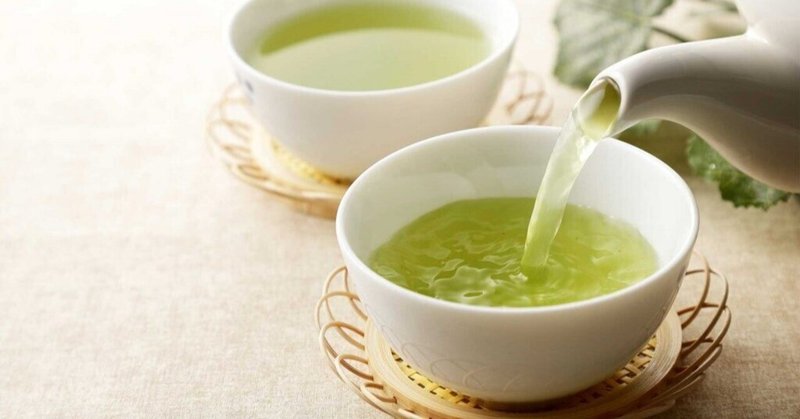
「京都発‼ウイルス対策喫茶」の新しいルールを広めよう!!Spread the word about the new rules of the Anti-Virus Café from Kyoto!
【お茶を飲むときは、10秒間口に含みそして飲む】ウイルスの不活性化が期待できます。[When drinking tea, hold it in the mouth for 10 seconds and then drink it] This is expected to inactivate the virus.

『茶のカテキンによるウイルス不活性化』飲食店などで、マスクを外したら会話する前にまずお茶を含み飲みする(10秒間程度口腔内全体にお茶を行き渡らせてから飲む)'Virus inactivation by catechins in tea' In restaurants and other places, after removing the mask and before talking, drink a cup of tea (let the tea spread throughout the mouth for about 10 seconds before drinking).
人と対面して、お話をする際に、まずは。お茶を口に含み(10秒間)口内の隅々までいきわたらせて飲みます。
これで、コロナウイルスの不活性化ができるのです。この情報は、試験管の中での実験ですが、たったこれだけで、ウイルスの不活性化ができれば、ワクチンや、重症化が防げれば、非常に儲けものです。When meeting people face to face and talking to them, first. Take a cup of tea in your mouth (for 10 seconds) and drink it all over your mouth. This will inactivate the coronavirus. This information is an experiment in a test tube, but if this is all it takes to inactivate the virus, it would be very profitable if a vaccine or severe illness could be prevented.
研究概要
京都府立医科大学(学長:竹中 洋 所在地:京都府上京区)大学院医学研究科 免疫学 松田修教授らの研究グループは、新型コロナウイルス(SARS-CoV-2 以下 ウイルス)感染症の拡大が続く中、感染者の唾液中のウイルスを不活化できれば飛沫を通じた感染の抑制に効果的であろうと考え、食品成分によるウイルス抑制の研究・試験を開始しました。その結果、お茶に含まれるカテキン類(※1)(以下 茶カテキン類)がウイルスを不活化する(感染能力を失わせる)ことを見出し、その後株式会社伊藤園(社長:本庄大介本社:東京都渋谷区)中央研究所との共同研究を開始しました。
その結果、茶カテキン類がウイルスのスパイクたんぱくに結合し、細胞への感染能力を低下させる効果などを確認しました。また、試験管内でヒト唾液中に加えたウイルスに対しても、茶カテキン類による迅速かつ効果的な不活化がみとめられました。これらの結果を報告した2報の論文が、この度6月8日(火)および11日(金)にそれぞれ、「Pathogens」と「Molecules」(※2)に掲載されましたのでお知らせします。A research group led by Professor Osamu Matsuda of the Department of Immunology, Graduate School of Medicine, Kyoto Prefectural University of Medicine (President: Hiroshi Takenaka Location: Kamigyo-ku, Kyoto Prefecture) has started research and trials on the suppression of viral infection through droplets, believing that inactivating the virus in the saliva of infected persons would be effective in reducing the spread of new coronavirus (SARS-CoV-2 virus) infection as the spread of the disease continues. In view of this, research and trials were initiated into the use of food ingredients to inhibit viruses. As a result, we discovered that catechins (*1) contained in tea (hereafter referred to as tea catechins) inactivate viruses (i.e. lose their ability to infect), and subsequently commenced joint research with the Central Research Institute of ITO EN Ltd (President: Daisuke Honjo, Head Office: Shibuya-ku, Tokyo). As a result, it was confirmed that tea catechins bind to the spike protein of the virus and reduce its ability to infect cells, among other effects. In addition, tea catechins were found to rapidly and effectively inactivate viruses added to human saliva in vitro. Two papers reporting these results were published in Pathogens and Molecules (*2) on Tuesday 8 and Friday 11 June respectively.
茶カテキン類は、茶類に高濃度に含まれます。しかし茶類を経口摂取しても血液中への移行は少なく、特に重合したカテキン類はほとんど吸収されません。そこでお茶を飲んでも、消化管から吸収されたカテキン類が全身的に作用する効果は期待しにくいと考えられます。一方で、お茶を口中に含んだ時に、口腔内で唾液中のウイルスが茶カテキン類によって不活化される効果は期待できると考えられます。それゆえ、多くの人がお茶を飲めば、唾液中のウイルスが不活化されることによって飛沫感染が減少し、人集団全体としてはウイルスの感染拡大を減弱させられる可能性は考えられます。たとえば飲食店などで、マスクを外したら会話する前にまずお茶を含み飲みする(10秒間程度口腔内全体にお茶を行き渡らせてから飲む)、といった行動を多くの人がとれば、症状のない感染者から周りの人への感染が減らせるかもしれません。つまり、お互いに他人のためにお茶を飲むという、「公衆衛生的な」使い方は有効な可能性があります。
PS. 抹茶ラテではどうでしょうか?実はミーティングで質問が出ていました。ウイルスのスパイクには、ミルクのカゼインが結合します。ですので、ウイルスを不活性化はできません。片や、豆乳では、ウイルススパイクは、カテキンと結合がして、ウイルス不活性化ができるそうです。
12代喜多重左衛門 記
Tea catechins are found in high concentrations in tea. However, even if tea is ingested orally, there is little transfer into the bloodstream, especially polymerised catechins, which are hardly absorbed. Therefore, it is unlikely that drinking tea will have a systemic effect on catechins absorbed from the gastrointestinal tract. On the other hand, tea catechins can be expected to inactivate viruses in saliva in the oral cavity when the tea is taken in the mouth. Therefore, if a large number of people drink tea, the inactivation of viruses in saliva may reduce droplet transmission, which may reduce the spread of viruses in the human population as a whole. For example, if many people take off their masks in restaurants and other places and first drink a cup of tea (spread the tea around in the mouth for about 10 seconds before drinking it) before talking, it may reduce the spread of the virus from infected people without symptoms to those around them. In other words, the 'public health' use of drinking tea for each other and others could be effective. p.s. What about matcha lattes? The question was actually raised at the meeting. The casein in the milk binds to the viral spikes. Therefore, the virus cannot be inactivated. On the other hand, in soya milk, the viral spikes bind to catechins, which can inactivate the virus. By Kita Juzaemon❣ XII
宇治茶師の末裔です。私も緑茶の広報を世界に発信しています。喫茶道・喜多重左衛門として、日本人の身近にある緑茶の偉大なる効能を再発見中です。地球にも優しい有機宇治抹茶を推奨しています。よろしくお願いします。
